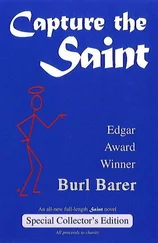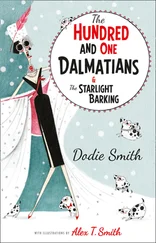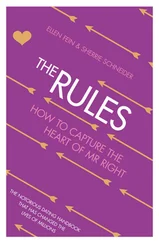Dodie Smith - I Capture the Castle
Здесь есть возможность читать онлайн «Dodie Smith - I Capture the Castle» весь текст электронной книги совершенно бесплатно (целиком полную версию без сокращений). В некоторых случаях можно слушать аудио, скачать через торрент в формате fb2 и присутствует краткое содержание. Жанр: Старинная литература, на русском языке. Описание произведения, (предисловие) а так же отзывы посетителей доступны на портале библиотеки ЛибКат.
- Название:I Capture the Castle
- Автор:
- Жанр:
- Год:неизвестен
- ISBN:нет данных
- Рейтинг книги:4 / 5. Голосов: 1
-
Избранное:Добавить в избранное
- Отзывы:
-
Ваша оценка:
- 80
- 1
- 2
- 3
- 4
- 5
I Capture the Castle: краткое содержание, описание и аннотация
Предлагаем к чтению аннотацию, описание, краткое содержание или предисловие (зависит от того, что написал сам автор книги «I Capture the Castle»). Если вы не нашли необходимую информацию о книге — напишите в комментариях, мы постараемся отыскать её.
I Capture the Castle — читать онлайн бесплатно полную книгу (весь текст) целиком
Ниже представлен текст книги, разбитый по страницам. Система сохранения места последней прочитанной страницы, позволяет с удобством читать онлайн бесплатно книгу «I Capture the Castle», без необходимости каждый раз заново искать на чём Вы остановились. Поставьте закладку, и сможете в любой момент перейти на страницу, на которой закончили чтение.
Интервал:
Закладка:
Topaz might have mentioned something to him."
She was back in a minute.
"He only knows that Topaz will be home this evening--because he's calling for her. I suppose you'd better lunch with us--you'll have to wait till two, though, because I'm having a long morning with Stephen.
I've got to take him to some film people this afternoon. You can amuse yourself for an hour or so, can't you his Get a taxi at half-past
one."
I thought of refusing, but I did want to see her house and studio --and have another look at her and her husband; it sounded as if Topaz was
very thick with him. So I thanked her and accepted.
After I stopped hearing her bleating voice, I told myself that it was really very kind of her to ask me and that I ought to get over my
prejudice against her.
"That'll be nice for you," said the maid, "though Cook would have given you some lunch, of course. Let's see, you've got an hour and a half to put in--I expect you'd like to look at some shops."
But I didn't fancy lugging Heloise round crowded streets, so I said I would just walk in Hyde Park.
"Your frock's quite a bit creased, miss," she told me.
"I could press it, if you like."
I had a look at myself in Rose's long glass.
It is strange what surroundings can do to clothes--I had washed and
ironed my green dress the day before and thought it very nice, but in Rose's room it seemed cheap and ordinary. And lying on the bed in it
hadn't helped matters. But I didn't like to take it off to be
pressed, because my underclothes were so old and darned, so I thanked the maid and told her I wouldn't bother.
It was hot walking in the Park so I sat down on the grass under some
trees. Heloise rolled and then enticed me with waving paws to tickle
her; but I was too lazy to make a good job of it so she turned over and went to sleep. I leaned back against a tree-trunk and gazed around
me.
It struck me that this was the first time I had ever been on my own in London. Normally, I should have enjoyed getting the "feel" of it--you never quite do until you have been alone in a place-and even in my
anxious state of mind it was pleasant sitting there quietly, looking at the distant scarlet 'buses, the old cream-painted houses in Park Lane and the great new blocks of flats with their striped sun-blinds. And
the feel of the Park itself was most strange and interesting--what I
noticed most was its separateness; it seemed to be smiling and amiable, but somehow aloof from the miles and miles of London all around. At
first I thought this was because it belonged to an older London-
Victorian, eighteenth century, earlier than that. And then, as I
watched the sheep peacefully nibbling the grass, it came to me that
Hyde Park has never belonged to any London- that it has always been, in spirit, a stretch of the countryside;
and that it thus links the Londons of all periods together most
magically- by remaining forever unchanged at the heart of the
ever-changing town.
After I heard a clock strike quarter-past one, I went out to Oxford
Street and found a nice open taxi. It was Heloise's first through
London and she barked almost continuously-the driver said it saved
blowing his horn.
I had never been to St. John's Wood before; it is a fascinating with
quiet, tree-lined roads and secret-looking houses, most of them old--so that the Fox-Cottons" scarlet front door seemed startling.
Aubrey Fox-Cotton came out into the hall to meet me.
"Leda's still busy," he said, in his beautiful, affected voice. By daylight his narrow face looked even grayer than it did that night at Scoatney. He is a most shadowy person and yet there is something
unforgettable about his dim elegance. Heloise took rather a fancy to
him, but he just said, "Comic creature," and waved a vague hand at her.
He gave me some sherry and talked politely, but without really noticing me, until it was well after two. At last he said we would "drift over"
and rout the others out.
We went through the back garden to a building that looked if it had
originally been a stable. Once inside, we were faced with a black
velvet curtain stretching right across. There was a little spiral
staircase in one corner.
"Go on up," he whispered, "and keep quiet in case it's a psychological moment."
At the top of the staircase was a gallery from which we could look down into the studio. It was brilliantly lit, with all the lights focussed on a platform at the far end. Stephen was standing there, in a Greek
tunic, against a painted background of a ruined temple.
He looked quite wonderful. I couldn't see Leda Fox-Cotton anywhere but I could hear her.
"Your mouth's too rigid," she called out.
"Moisten your lips, then don't quite close them. And look up a
fraction."
Stephen did as she said, and then his head jerked and he went bright
scarlet.
"What the hell was began Leda Fox-Cottonthen she realized he had seen someone in the gallery, and went and stood where she could see us
herself.
"Well, that's that," she remarked.
"I shan't get anything more out of him now. He's been self-conscious all morning--I suppose it's that tunic. Go and change, Stephen."
She was all in black--black trousers, black shirt- and very hot and
greasy, but there was a hard-working look about her which made the
greasiness less unpleasant than it had seemed at Scoatney.
While we were waiting for Stephen, I asked if I could see some of her work and she took me through into what must have been the stable of the next-door house. It was furnished as a sitting-room, with great divans piled with cushions. Everything was black or white. On the walls were enlargements of photographs she had taken, including one of a
magnificent, quite naked Negro, much larger than life. It reached from the floor up to the high ceiling and was terrifying.
There was a huge framed head of Stephen waiting to be put up.
I admired it and said how beautifully he photographed.
"He's the only boy I ever had the chance to do who was beautiful without looking effeminate," she said.
"And his physique's as good as his head. I wish the silly child would strip for meI'd like to put him up beside my Negro."
Then she handed me a whole sheaf of Stephen's photographs, all
wonderful. The queer thing was that they were exactly like him and yet he seemed quite a different person in them--much more definite,
forceful, intelligent. Not one of them had that look of his that I
used to call "daft." While we were lunching (on a mirror-topped table) I wondered if it hadn't perhaps gone in real life. He was certainly
much more grownup, and surprisingly at ease with the Fox-Cottons.
But he still wasn't--well, so much of a person as in the photographs.
The food was lovely--so was everything in the place, for that matter, in an ultra-modern way.
"All wrong for this old house," said Aubrey (they told me to call them by their Christian names), after I had been admiring the furniture.
"But I prefer modern furniture in London and Leda won't leave her studios and take a flat. Modernity in London, antiquity in the
country- that's what I like. How I wish Simon would let me rent
Scoatney!"
"Perhaps Rose will fall in love with New York when they go there for their honeymoon," said Leda.
"Are they going?" I asked, as casually as I could.
"Oh, Rose was talking about it," said Leda, vaguely.
"It would be a nice time to go, if they get married in September. New York's lovely in the autumn."
The most awful wave of depression hit me. I suddenly knew that nothing would stop the wedding, that I had come up to London on a wild-goose
Читать дальшеИнтервал:
Закладка:
Похожие книги на «I Capture the Castle»
Представляем Вашему вниманию похожие книги на «I Capture the Castle» списком для выбора. Мы отобрали схожую по названию и смыслу литературу в надежде предоставить читателям больше вариантов отыскать новые, интересные, ещё непрочитанные произведения.
Обсуждение, отзывы о книге «I Capture the Castle» и просто собственные мнения читателей. Оставьте ваши комментарии, напишите, что Вы думаете о произведении, его смысле или главных героях. Укажите что конкретно понравилось, а что нет, и почему Вы так считаете.












